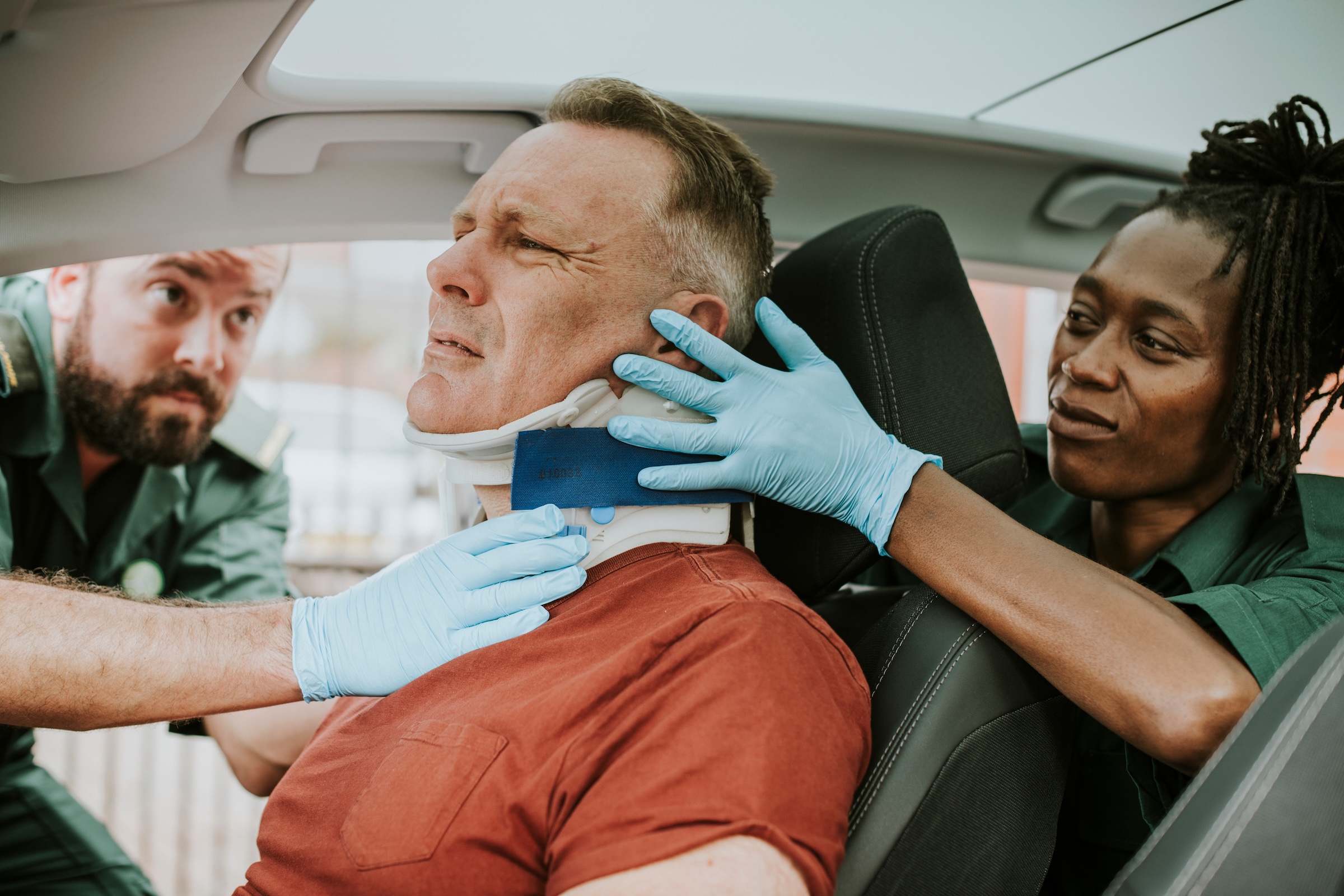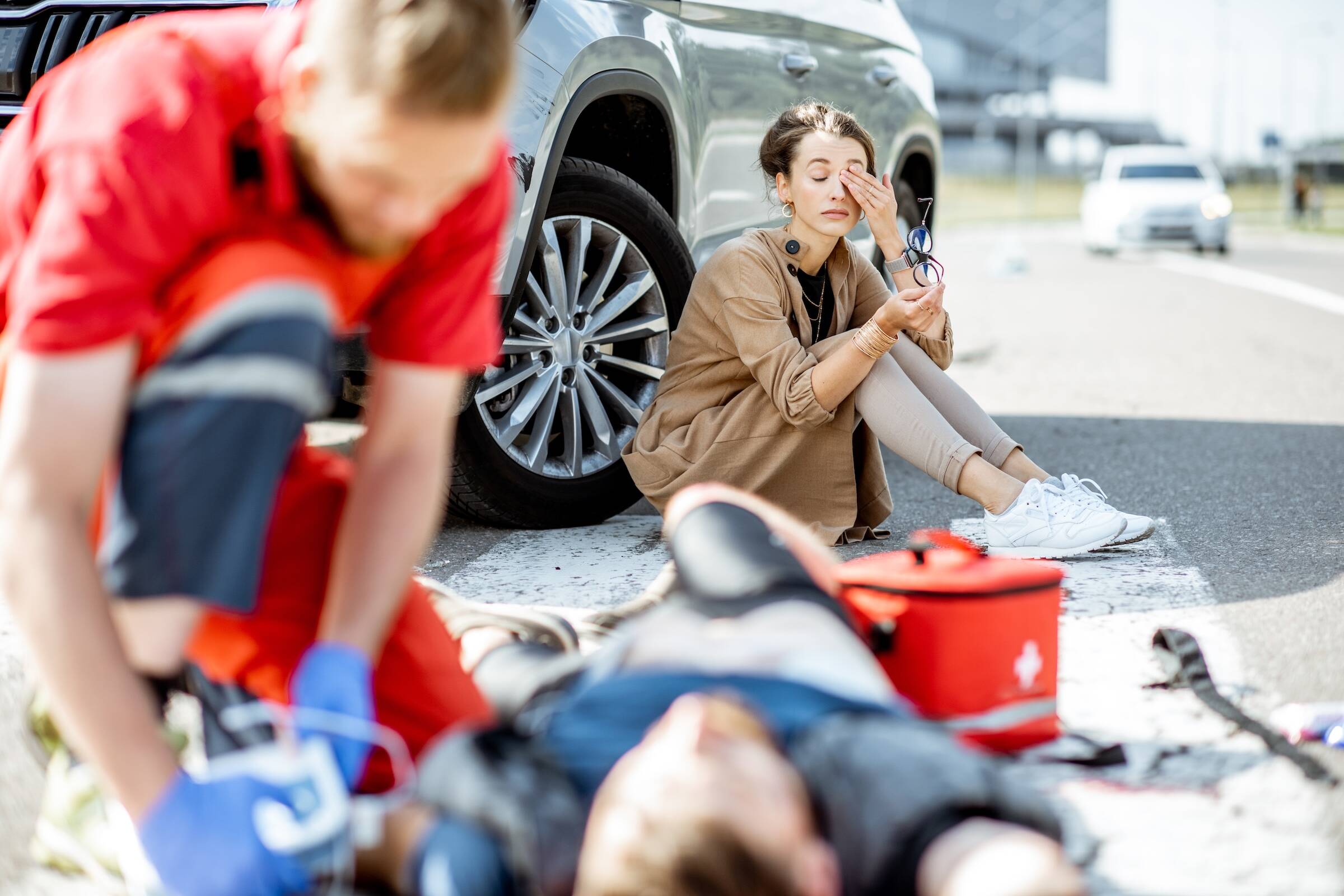Who’s Liable in a Commercial Vehicle Accident—The Driver or the Company?
So you’ve been in a crash with a commercial vehicle—maybe it was a box truck, a rideshare car, a delivery van, or a full-on semi. Either way, your car’s wrecked, your neck hurts, and now you’re stuck trying to figure out who to hold responsible. Is it the driver who hit you? Or the company that put them on the road in the first place?
If you’re asking that question, you’re not alone. It’s one of the first things people Google after getting hit by a work vehicle—and for good reason. Because if the company’s at fault, there’s usually more money available, which means a better shot at getting your medical bills, car repairs, and time off work fully covered.
Let’s walk through how liability actually works when a commercial driver causes a crash, how attorneys figure out who’s on the hook, and why you don’t want to wait around to get answers.
It’s Not Always the Driver’s Fault—Even If They Caused the Crash
At first glance, it seems obvious. The driver was the one behind the wheel. They hit you. End of story, right?
Not quite.
In commercial vehicle cases, it’s often about more than just what happened in the moment. Maybe the driver was overworked and sleep-deprived. Maybe the company skipped required vehicle maintenance. Or maybe the driver shouldn’t have been hired in the first place. These are the kinds of deeper issues that can make the company—not just the driver—legally and financially responsible.
That legal concept is called “vicarious liability.” It basically means that employers can be held accountable for what their employees do while on the job. And if that job involves driving a vehicle? That includes accidents.
But here’s where things get complicated. Not every driver is technically an employee. Some are independent contractors. Others might be working for a subcontractor or third-party company. That’s why it takes legal expertise to figure out who’s legally tied to the crash—and who has the insurance coverage to pay up.
When the Company Could Be Held Responsible
There are a bunch of reasons a company can be held liable for a crash—even if they weren’t in the car. Here are a few of the most common:
-
The driver was “on the clock” at the time of the accident
-
The company failed to train the driver properly
-
The vehicle wasn’t maintained, and mechanical issues led to the crash
-
The company pressured the driver to speed or skip rest breaks
-
The driver had a bad record, and they hired them anyway
These kinds of issues aren’t just about bad luck. They’re about bad management. And when a company’s policies, neglect, or shortcuts lead to someone getting hurt, the law can—and should—hold them accountable.
That said, you won’t get to that kind of proof just by filing an insurance claim. You need legal help to dig into company records, safety logs, and hiring practices.
What About Independent Contractors or Gig Drivers?
This is where a lot of people get tripped up. If the driver who hit you was working for Uber, DoorDash, Amazon, or another gig-based company, you might be thinking, “They’re not really employees… does that mean I’m out of luck?”
Not at all.
Even if someone’s classified as a contractor, you can still have a case against the company. It all depends on the specific relationship between the driver and the brand, and whether the company still had control over how the work was performed.
For example, if Amazon set unrealistic delivery deadlines that caused the driver to speed or skip breaks, that might make Amazon partially responsible—even if they technically didn’t employ the driver. Same goes for Uber and Lyft if their app logic or shift schedules played a role in the crash.
Bottom line: don’t assume you’re stuck going after just the driver. Let a lawyer explore every angle of responsibility.
What Happens If You Sue the Company Instead of the Driver?
In most cases, going after the company doesn’t mean you’re skipping the driver. It just means you’re expanding the scope of the claim. And that’s a good thing.
Here’s why:
-
The company likely has bigger insurance policies
-
There’s a higher chance of full compensation for all your damages
-
It shifts the focus from a personal issue to a business-level failure
That kind of leverage can lead to faster settlements, bigger payouts, and less back-and-forth with adjusters. It also helps hold companies accountable so they stop cutting corners and putting unsafe drivers on the road.
Why You Shouldn’t Try to Figure This Out Alone
Unless you’re a lawyer, you probably don’t have the time—or the energy—to untangle who’s liable in a commercial crash. And you shouldn’t have to.
The companies involved in these accidents aren’t playing around. They have legal teams whose only job is to avoid paying people like you. They’ll say the driver wasn’t working. They’ll claim you were at fault. They might even try to offer a quick payout that sounds decent—but doesn’t come close to covering your long-term costs.
You don’t need to play that game.
At Whiplash Wealth, we match people with attorneys who specialize in commercial vehicle accidents. People who know how to read between the lines of contracts, timelines, and insurance claims to figure out exactly who’s responsible—and how to get you paid.
Next Steps
If you were in a crash with a commercial vehicle, don’t wait. There’s a clock ticking on your ability to file a claim, and companies love when people hesitate. The faster you act, the easier it is to gather evidence, secure medical documentation, and start the legal process on the right foot.
Get matched with the right attorney today. It takes less than a minute—and it could make all the difference in what you walk away with.




